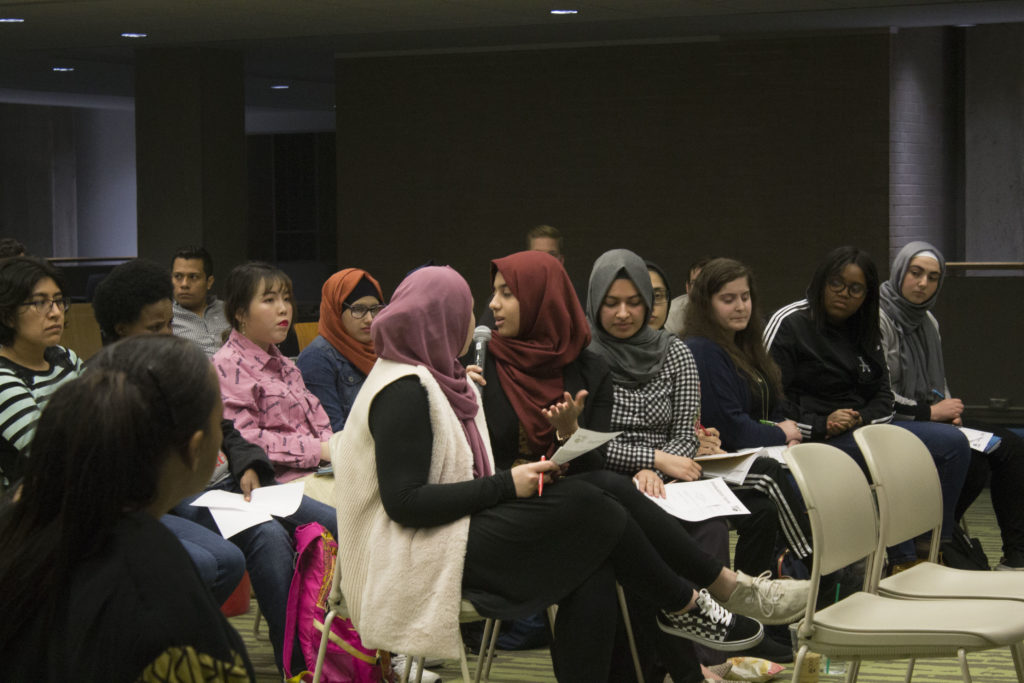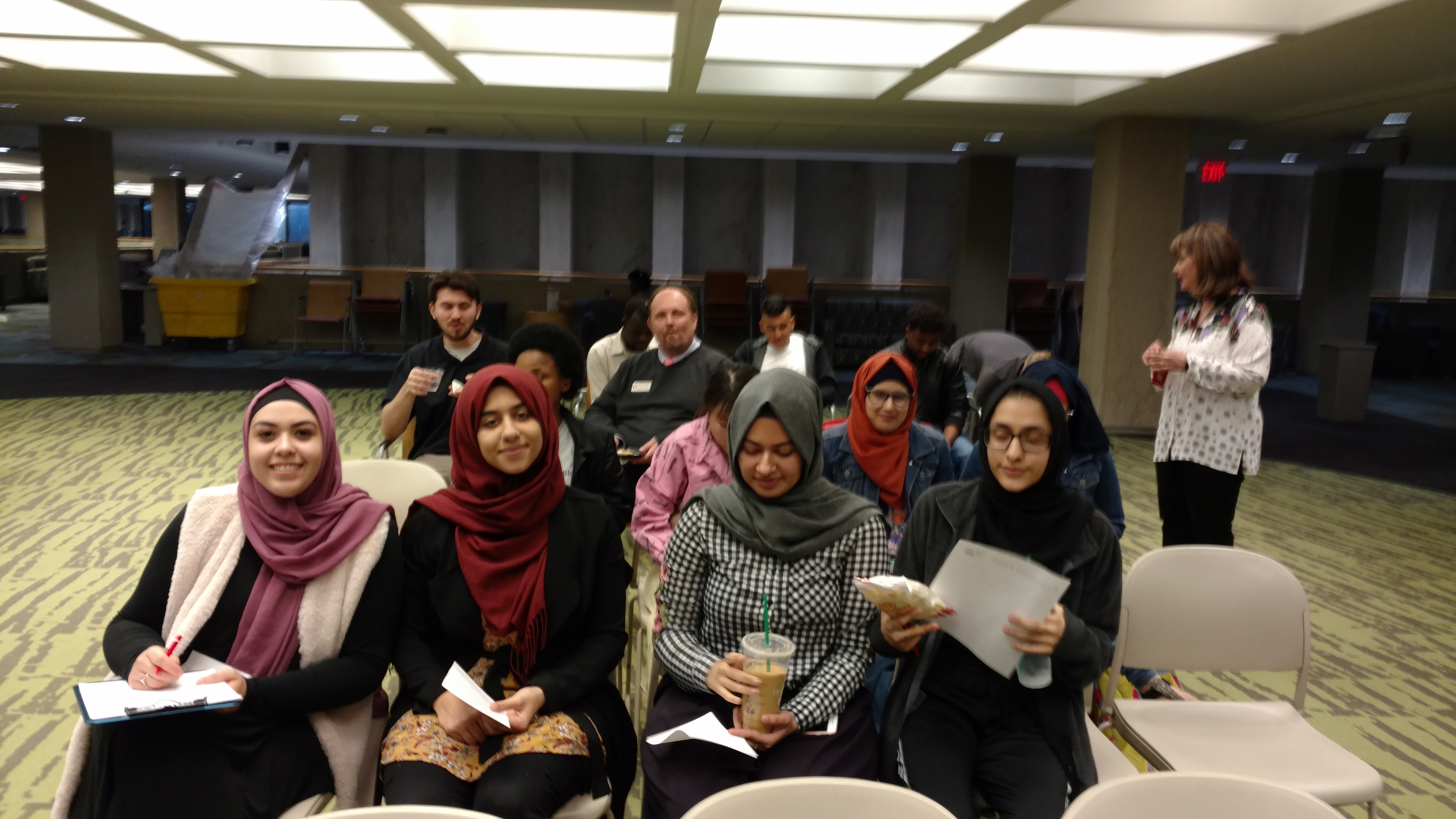On Tuesday, April 9, The Multifaith Ministry held a Sinclair Talks called “I Want to Hear Your Voice: Muslim Women Share Their Stories.”
The talk took place in the library loggia from 11 a.m. to 12 p.m. and presented a small panel of women who shared and discussed their experiences and perspectives on what it is like to be a young Muslim woman in modern day America.
The talk was quite informal and allowed audience members to ask the young women questions about cultural and religious-related subjects.
The purpose behind the event was unique; rather than it being a “Sinclair Talks” the goal was to try to make it a “Sinclair Listens” event, allowing the speakers to share what was most meaningful to them.
Multifaith Ministry Chaplin Larry Lindstrom and Dr. Shirley Stallworth, who is a retired Sinclair professor, established this event. Dr. Shirley’s vision is to have a program with the theme “I Want to Hear Your Voice” each semester.
“The program will lift up concerns and issues that affect one group of women who are otherwise not heard from. We hope that future events will help the campus to hear from many different women, and in the process develop a greater understanding of the issues,” said Lindstrom.
The panel consisted of four young women who answered questions asked by audience members. They were also joined by Sinclair staff member Rukhi Jan, who has served as a speaker for Islam at an event The Multifaith Ministry sponsored in previous years.
When asked about some of the challenges Muslim students encounter and what could be done to help them feel more welcomed, a CCP student on the panel explained how Sinclair does a great job including minorities and having important conversations with and about them.
However, she went on saying how in her high school, which is primarily white, she sometimes feels misunderstood.
She states that she is the only one in her high school who wears a hijab, the garment many Muslim women wear to cover their heads (which can range from just a headpiece to a full body piece) and that often times people just don’t understand why.
“I think in places and situations like that, they need to have more events where people from that background speak out, educate them, show them what their faith is really about and basically debunk the media, because they’re not portraying it in a factual manner,” she said.

Another student on the panel spoke to the audience about curiosity and how to be unafraid about asking questions about one’s culture.
“I honestly feel so happy when someone comes up to me and asks me ‘what you believe and why’…I tell people don’t be afraid, just like everyone, we’ll be happy if you come up to us and ask questions.” She stated.
When questions arose regarding the hijab, the young women explained the meaning behind it.
The word “hijab” originates from the word “barrier.” It means modesty in all forms, not just physical modesty.
“We’re not supposed to just cover our heads; our actions fall into this as well.” Said one of the girls.
The barrier the hijab symbolizes falls for the respect of women. When a woman is offered a hand to shake or offers their own hand to shake, they or the other person will place their hand on their heart, as a sign of respect toward the meaning of the hijab.
“Just because someone does not wear the hijab doesn’t make them less of a Muslim.” One of the girls clarifies.
Jan dove into how wearing a hijab is the last thing to “check off of the list.”
First, it’s about prayer, do you pray five times a day? Do you keep to the values Islam teaches, etc.? After you practice all of these, the hijab comes into play.
The girls were very warm and welcomed any questions audience members wanted to personally ask after the session. Cookies, cheese
This is the first “I Want to Hear Your Voice” talk, and those in attendance hope it will inspire an entire series of events like it in future semesters.
“We want to empower all persons, not just women, not just Muslims, to speak of their experiences and to be heard respectfully,” Lindstrom said. “In that sense, this program represents an important experiment. We want to model respectful conversation that gives to everyone involved the gift of knowing that they ‘have a place at the table.’”
Yasel Rosado
Reporter


